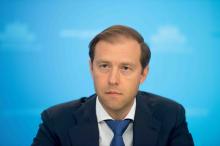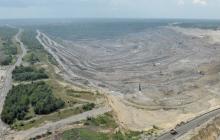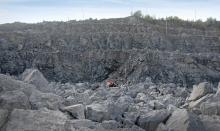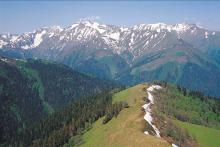Foreign investors are keen to increase their involvement in the Russian aggregates’ industry. Eugene Gerden reports.
China National Building Materials Group (CNBM) is one of China’s largest producers of building materials. The corporate giant is expanding in the Russian aggregates industry through the signing of an agreement with the Eurocement Group, one of Russia’s largest producers of aggregates and the country’s leading cement producer. This will see the joint establishment of facilities in Russia for the production of aggregates and other construction materials.
Under the terms of the agreement, CNBM will become a shareholder of the Eurocement Group and, according to some sources close to the companies, may invest up to €4.56 billion (US$5 billion) in increasing Eurocement Group’s aggregates production in Russia. The size of CNBM’s stake in Eurocement Group will also allow it to block the implementation of any Eurocement Group management decisions that they disagree with.
Currently the aggregates’ reserves of Eurocement Group, owned by Russian billionaire Filaret Galchev, are estimated at more than 2.8 billion tonnes. Its granite reserves estimate is said to be in the range of 1.7-1.8 billion tonnes.
Eurocement Group needs financial partners for the completion of its €1.82 billion ($2 billion) investment program, covering the period 2013-2018. According to the company’s initial plans, up to 70% of the funds needed for its investment programme were to be provided by domestic banks in the form of loans. However, thanks to their partnership with CNBM, these plans may be revised.
According to analysts of the Russian Ministry of Industry and Trade, CNBM’s Eurocement Group shareholding gives them access to the Group’s large aggregates’ reserves, ensuring regular supplies of finished products both to the Russian and Chinese markets. CNBM is also thought to be interested in developing Russian-based production of other types of construction materials.
However, analysts of the Russian Ministry of Industry and Trade (RMIT) believe that CNBM has chosen a wrong time for its expansion into Russia, taking into account the consequences of the country’s economic crisis in the wake of Western sanctions.
According to RMIT, the Chinese-Russian business partners may also find it difficult to implement their Russian projects due to the country’s low aggregates demand. According to experts, the overproduction of the majority of aggregates in Russia is likely to continue over the next ten years. This is also confirmed by the State Strategy of the Development of the Russian Industry of Building Materials until 2020, recently designed by the Russian Ministry of Industry and Trade. According to its calculations, the current volume of local aggregates production covers domestic demand for them until 2025. In the case of certain types of materials, current production is sufficient until 2030.
The depressed state of the Russian aggregates market is also aggravated by the fact that aggregates pricing nationally is subject to significant distortions. Data from the Russian Ministry of Industry and Trade shows the average purchase price of materials may be by 2.5 times higher than the selling price set producers. Such a situation is attributed to a large number of intermediaries operating in the Russian market.
Meanwhile, Sergey Medin, deputy director of Nerudny Materials, a Russian producer of aggregates, says the participation of CNBM in the share capital of Eurocement Group, which operates more than 30 aggregate production facilities and quarries in Russia, is part of CNBM’s ambitious plans to gain control of Russia’s “rich aggregates base”.
Medin believes the Chinese expansion into the Russian market, which, he says, started in the second half of 2014, suggests the ultimate aim of Chinese companies is to export Russian aggregates to China and the Asia-Pacific region at cheaper prices. The same view is currently shared by other Russian producers of aggregates and officials, who see Chinse firms’ plans as quite understandable, due to Russia’s rich aggregates reserves and relatively liberal legislation around aggregates production.
According to Denis Manturov, Russia’s Minister of Industry and Trade, who is responsible for the development of the Russian aggregates industry, Chinese corporations are not the only investors interested in future expansion into the Russian aggregates industry in the coming years.
Manturov says that in recent years many EU producers of aggregates and construction materials have also expressed an intention to establish their production facilities within Russia. According to him, some of the potential projects in this area were discussed during the recent St. Petersburg Economic Forum, one of the most important business events in Russia.
According to Manturov, the interest of foreign company investors, particularly from within the EU, in Russia’s domestic aggregates industry can be partially explained by strict national legislation around aggregates production in their respective countries.
Ivan Pereverzev, head of Sheben Enterprises, one of Russia’s largest aggregates’ producers, says: “The production of aggregates in the EU has faced a number of challenges in recent years. This is mainly due to the depletion of some of the largest local aggregates fields, as well as the opposition of local animal habitat defenders and other ‘green’ activists to aggregates production on fields within their territories. This often increases logistics and transport costs for producers and reduces investment attractiveness of local fields.
“The same trend is currently observed in China, which is reflected by authorities’ tightening of local legislation in the field of aggregates production in recent years. This has forced many producers to search for alternative ways of doing business and to expand in other territories, including Russia.”
Despite low demand and other highlighted issues, the Russian Ministry of Industry and Trade confirms that foreign interest in the Russian aggregates market remains high.
Furthermore, in contrast to other segments of the RRussian building materials market, aggregate production in the country is growing steadily this year. According to government data, the first three quarters of 2016 saw 200 million m³ of national aggregate production - 7% more than in the same period last year.








